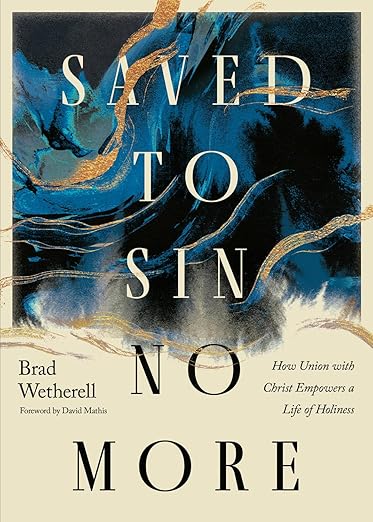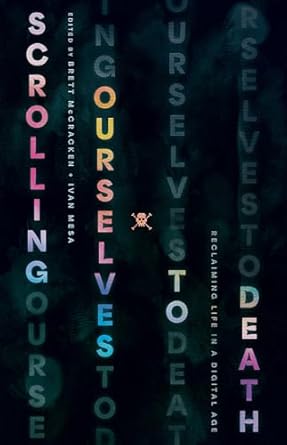The church is far from perfect. A quick look reveals that imperfect people sin against each other in the church. Pastors betray people. People slander their leaders. The sins of gossip, pride, and adultery are more common than we care to admit. Sins of words wound weary people. Sexual sin destroys families and brings shame to the body of Christ. The cycle seems endless, like a slow drip that never ends. Drip, drip, drip.
The Description of Cynicism
The ripple effects of sin have consequences that involve people both on an individual and corporate level. One of those consequences is cynicism, a disposition marked by a distrust of people, which leads to a pessimistic and gloomy attitude toward life. Such an attitude may target people or the institutions they serve. Cynicism is not merely a negative attitude; it is linked to a disposition that affects people and their approach to life and ministry.
Cynicism is a wholesale “distrust of others’ motives, a belief that people are primarily driven by self-interest, greed, or dishonesty, leading to a pessimistic view that humanity’s professed ideals are false.” Of course, cynicism comes in varying degrees. But when cynicism takes root in our hearts, it will affect how we live the Christian life. We will become less grateful, less joyful, and increasingly skeptical. Ouch! If this description sounds a lot like you, get in line. It has become part of the warp and woof of our culture. However, my primary concern is how cynicism rears its ugly head within the church.
Cynicism has a stranglehold on the church. The seeds of cynicism begin when people we trust fall into sin. One of the Christian leaders who greatly impacted my life succumbed to sexual immorality and was removed from his preaching post. His sin forced him to tender his resignation at his church, the seminary he served at, and the ministry he founded. Looking back, I’ve lost count of the number of pastors and professors who have committed disqualifying sins. My heroes disappointed me. My heart has been crushed many times. But I am reminded, except for the grace of God, there go I.
When Christian leaders are exposed, discredited, and disqualified from ministry because of sin, cynicism’s seeds can germinate rapidly and make the unsuspecting victim fall prey to its hideous designs. Negativity and skepticism replace God-centered faith when cynicism blooms in the heart.
The Diagnosis of Cynicism
Diagnosing cynicism is challenging, to be sure. How can we tell if cynicism has taken root, and how can we avoid it? Several diagnostic questions will help monitor our propensity to grow cynical:
- Am I growing increasingly cold toward other people?
- Is my trust in church leadership declining?
- Do I find my attitude growing darker and more pessimistic?
- Is my love for ministry wavering?
- Am I ungrateful?
- Do I struggle to believe people?
- Do I struggle to believe the best about people or a given situation?
- Do I struggle with giving people the benefit of the doubt?
- Am I always waiting for “the other shoe to drop?”
- Do I have difficulty trusting people?
- Is my confidence in the local church waning?
- Has my attitude impacted my involvement in ministry?
These diagnostic questions will help address what is primarily a heart issue. When people disappoint us and the church misses the mark, we have a tendency to become cynical.
There is a predictable pattern that takes place in our hearts, a trajectory, if you will, that involves cynicism. It begins when someone disappoints us or sins against us. They might lie to us, lie about us, betray us, or sin against us in some way. It might be a sin that is personally experienced, or it may be a sin that someone commits whom we have never even met.
The Dangers of Cynicism
When someone sins (either directly or indirectly), if we don’t process the pain of that transgression through the lens of the cross, we will slowly move down a path of doubt, bitterness, skepticism, mistrust, and anger. Cynicism may start small, but if left unchecked, it will grow incrementally, leaving us paralyzed and ineffective.
Without the cross of Christ, we are all destined to walk down a cynical path. The dangers of succumbing to cynicism are serious, indeed. For the cynic will eventually lose all trust in people and find themselves in a posture of seclusion and self-righteousness. You might reason:
- “I paid my dues, and this is what I get in return?”
- “I have served God faithfully, and the people around me couldn’t care less.”
- “I have sacrificed for the Lord and received so little in return.”
Notice the common theme in the above responses, namely, self-focus. Each of these responses reflects a growing cynicism that takes root in our hearts. When the sin of other people affects us directly, we have a tendency to turn inward and ultimately walk away from the command to love our neighbors (Matt. 22:39). We reach a point where the hurt is too great to engage anymore. Generosity is minimized. Spiritual gifts are underutilized. Motivation is stunted. Eventually, ministry comes to a screeching halt – all because we’ve turned inward, which is a polite way of acknowledging that we have succumbed to the sin of pride and selfishness. We have allowed cynicism to rule our hearts.
The more glaring problem with cynicism, which takes place deep in our hearts, has to do with God. Cynicism at its root is a failure not only to refuse to trust people; it is a failure to trust God and his promises. And when we fail to trust God, we fail to love God, which, according to Jesus, is the greatest commandment (Matt. 22:37-38).
We get more than we bargained for when we slide down the slippery slope of cynicism. Cynicism is far more than a mere attitude that surfaces from time to time. This is a sin that needs to be rooted out and repented of. The sin of cynicism is serious indeed.
When we peel back the layers of cynicism, we find pride, selfishness, self-righteousness, and a failure to trust in God’s good providential plan. Joseph’s life is a stunning example of a man who could have easily slid into the sin of cynicism. He was hated by his brothers, left for dead in a pit, sold into slavery, falsely accused by Potiphar’s wife, and unjustly thrown into prison. Joseph consciously chose to forgo the path of cynicism. When he faced his brothers, who had betrayed him, his faith shone. Instead of hurling insults at them or using his political power as an act of revenge, he chose to trust in God’s providential control. Joseph responded to betrayal, false accusation, and acts of wickedness with a gigantic heart of God-centered faith! In Genesis 50:20, he says to the brothers who sinned against him, “As for you, you meant evil against me, but God meant it for good, to bring it about that many people should be kept alive, as they are today.”
The Duty of Christ-followers
Our challenge is to identify the sin of cynicism and allow the Holy Spirit to root out its diabolical influence from our lives, and learn to be content, even when other people sin against us. While our duty is to run from the insidious sin of cynicism, we must consciously choose to delight in God’s providential plans and respond with the God-centered faith of Joseph.
Our duty as followers of Christ is to put sin to death. One of those sins is cynicism. The apostle Paul writes, “Put to death therefore what is earthly in you: sexual immorality, impurity, passion, evil desire, and covetousness, which is idolatry. On account of these the wrath of God is coming” (Col. 3:5-6). We don’t normally equate cynicism with the sins that Paul outlines in these verses. But the five sins he mentions in verse 5 are not a comprehensive list. He merely samples what he describes as “earthly.” The sin of cynicism, then, is certainly numbered among the sins that need to be put to death. Cynicism, as we have seen, is both destructive and debilitating. So we move forward in obedience by killing the sin of cynicism.
Put to death comes from a Greek term that means, “To stop a state or activity with lethal determination; to put something to death.” The King James is even more provocative:
Mortify therefore your members which are upon the earth … (Col. 3:5)
Mortification, according to John Stott, is “a clear-sighted recognition of evil as evil, leading to such a decisive and radical repudiation of it that no imagery can do it justice except ‘putting to death.’” The Puritan divine John Owen says, “The vigor, and power, and comfort of our spiritual life depends on the mortification of the deeds of the flesh.” Our battle with sin is holy warfare. We dare not take a pea-shooter onto the spiritual battlefield. We don’t take a squirt gun or a BB gun. Such a move would be costly, to say the least.
The sins that Paul mentions, which we have argued are not a comprehensive list, lead to idolatry (Col. 3:5). In other words, sin unchecked leads to turning away from the living God and a preoccupation with false gods.
Stephen Charnock draws the curtain and reveals exactly what is happening behind the scenes:
All sin is found in secret atheism … All the wicked inclinations of the heart … are sparks from this latent fire; the language of every one of these is this, “I would be a Lord to myself, and would not have a God superior to me.”
Every sin is a kind of cursing God in the heart; an aim at the destruction of the being of God, not actually, but virtually … A man in every sin aims to set up his own will as his rule, and his own glory as the end of his actions against the will and glory of God.
The Bible is clear on this matter: We must put sin to death. Avoid sin at all costs. Don’t dabble in sin. Don’t even contemplate sin. We must kill the sin of cynicism! The apostle Paul adds, “For if you live according to the flesh you will die, but if by the Spirit you put to death the deeds of the body, you will live” (Rom. 8:13).
Four critical principles will push us on the path of victory as we commit to putting cynicism to death, in particular. First, killing cynicism requires decisiveness. John MacArthur writes, “Believers are to make a decisive resolution to put sin to death, bring the flesh under subjection to the Spirit-filled disposition.” We must be proactive. We must prepare ourselves. We must actively demolish the sin of cynicism.
Second, killing cynicism requires a keen understanding. The Bible contains both indicatives (what God has done) and imperatives (what God commands us to do). Some people make the mistake of downplaying the imperatives in Scripture. But Kevin DeYoung reminds us:
There is nothing sub-Christian in talking about obedience to God’s commands. There is nothing inherently anti-gospel in being exhorted to keep the imperatives of Scripture. There is nothing ungracious about divine demands. Just the opposite, in fact, – there is grace in getting law … Both the indicatives of Scripture and the imperatives are from God, for our good, and given in grace.
Third, killing cynicism requires trust in the Holy Spirit. Paul instructs us to put sin to death by the Spirit. Mortification, then, is not a method; it is a mindset. Ray Ortlund Jr. encourages us with a proper mindset. He says, “It is faith at work. It is a determination to stop dying and start living in the fullness of the Spirit. It is hungering and thirsting for righteousness so much that we act boldly and lay hold of it, looking to the Lord moment by moment for strength.” When cynicism rears its ugly head, trust in the Holy Spirit to accomplish a good work in your life.
Finally, killing cynicism requires obedience. As you consider the sin of cynicism, ask:
- What habits need to be erased in my life?
- What thought patterns need to be renewed in my life?
- What attitudes need to be adjusted in my life?
- What does repentance look like for me?
The crucial question is this: How is the gospel shaping my heart? The Puritan, Isaac Ambrose, weighs in: “Nothing will purify the heart, and mortify sin, like looking unto Jesus, in his love, agonies, and death. If God mercifully delivers you from the power of your inbred corruptions, and the snares of the devil, and blesses you with a pure heart, and a quiet mind, spend the remainder of your days with gratitude to God for such peculiar favors.” Our aim is radical obedience to Christ and his commands. So we strive each day to put cynicism to death by the power of the Spirit.
The Delight of Christ-followers
While demolishing the sin of cynicism is certainly a duty we must carry out, it is also a supreme delight. Notice again, Paul’s emphasis in Romans 8:13 —
For if you live according to the flesh you will die, but if by the Spirit you put to death the deeds of the body, you will live.
When you submit to Scripture and put cynicism (or any sin for that matter) to death, you will experience life! The Greek word translated as live means “to live supernaturally.” In other words, when you obey God, you will begin to really live! Killing the sin of cynicism, in the final analysis, is both a duty and a delight.
Conclusion
We have discovered that cynicism resides in the heart. We have learned about the dangerous ways that cynicism affects our lives by turning us away from loving people and loving God. And we have come face to face with the command to root out cynicism, to mortify it by the power of the Spirit, which results in daily victory as we obey God.
While the cycle of cynicism seems like a slow drip that never ends, constantly reappearing in our lives, our hope is that one day the insidious sin of cynicism will be finally erased and eradicated. Christ has set his people free from the penalty of sin. Christ has set us free from sin’s power. And one day, Christ will deliver us forever from sin’s very presence: “Behold, I am making all things new” (Rev. 21:8).
In the meantime, we see through a glass darkly. And we recognize the need to be a God-centered people. When Christ is the chief object of our affections, our pettiness disappears. When Christ is the chief object of our affections, our complaining ceases. When Christ is the chief object of our affections, we turn our focus from ourselves to him. When Christ is the chief object of our affections, our worship deepens, our fellowship grows sweeter with our friends, and our ministry to one another becomes more fruitful.
So, let us address our “inner cynic” and fight for joy. We stand at the foot of the cross and remember the price our Savior paid to set us free. So instead of being unduly influenced by the sin of cynicism, we commit to trusting people and trusting God. We commit to serving people and serving God. When people hurt us and disappoint us, we forgive them from the heart because Christ forgave us. We love people because Christ first loved us. Instead of withdrawing into our safe little shell, we move outward to impact lives for the glory of God. May the sin of cynicism be daily uprooted in our lives, by the power of the Holy Spirit, and replaced with Christ-centered character, all to the glory of God!
Soli Deo gloria
- John Stott, Romans: Good News for the World (Downers Grove IVP, 1994), 228. ↩
- John Owen, Of the Mortification of Sin in Believers (Edinburgh: Banner of Trust, 1967), 7. ↩
- Stephen Charnock, The Existence and Attributes of God (Grand Rapids: Baker, 1979), 1:93-94. ↩
- John MacArthur, The MacArthur New Testament Commentary – Colossians & Philemon (Chicago: Moody Press, 1992), 136. ↩
- Kevin DeYoung, The Hole in Our Holiness (Wheaton: Crossway Books, 2012), 52, 55. ↩
- Ray Ortlund Jr. Supernatural Living for Natural People: The Life-Giving Message of Romans 8 (Genie’s House: Christian Focus, 2001), 63. ↩
- Isaac Ambrose, The Christian Warrior: Wrestling with Sin, Satan, the World and the Flesh (Digital Puritan Press, 2012), Loc. 1453. ↩









